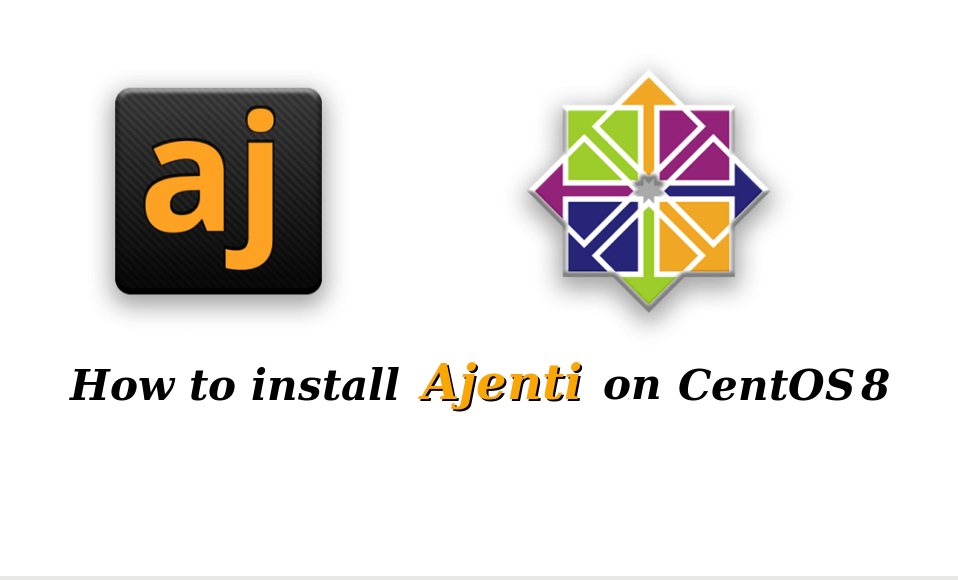Introduction
Ajenti is a web-based control panel for managing systems (like Webmin, cPanel). in addition to, It has a very beautiful and user-friendly interface. For personal use, Ajenti is freely available for under AGPLv3. For commercial use, you have to pay for a small amount regularly.
Installing
Automatic Installation
curl https://raw.githubusercontent.com/ajenti/ajenti/master/scripts/install.sh | sudo bash -s -
output:
[root@unixcop ~]# curl https://raw.githubusercontent.com/ajenti/ajenti/master/scripts/install.sh | sudo bash -s -
% Total % Received % Xferd Average Speed Time Time Time Current
Dload Upload Total Spent Left Speed
100 4854 100 4854 0 0 5657 0 --:--:-- --:--:-- --:--:-- 5657
:: OS: rhel
:: Distro: centos
:: Installing prerequisites
Last metadata expiration check: 16:51:20 ago on Mon 26 Jul 2021 04:53:07 PM EET.
Package epel-release-8-11.el8.noarch is already installed.
Dependencies resolved.
Nothing to do.
Complete!
Last metadata expiration check: 16:51:22 ago on Mon 26 Jul 2021 04:53:07 PM EET.
Package gcc-8.4.1-1.el8.x86_64 is already installed.
Package python36-devel-3.6.8-2.module_el8.4.0+790+083e3d81.x86_64 is already installed.
Package python3-pip-9.0.3-19.el8.noarch is already installed.
Package python3-pillow-5.1.1-12.el8_2.x86_64 is already installed.
Package python3-augeas-0.5.0-12.el8.noarch is already installed.
Package python3-dbus-1.2.4-15.el8.x86_64 is already installed.
Package openssl-devel-1:1.1.1g-15.el8_3.x86_64 is already installed.
Package chrony-3.5-2.el8.x86_64 is already installed.
Package redhat-lsb-core-4.1-47.el8.x86_64 is already installed.
Dependencies resolved.
Nothing to do.
Complete!
:: Upgrading PIPManual Installation
Native dependencies: Debian/Ubuntu
So Enable Universe repository (Ubuntu only):
sudo add-apt-repository universesudo apt-get install build-essential python3-pip python3-dev python3-lxml libssl-dev python3-dbus python3-augeas python3-apt ntpdateNative dependencies: RHEL/CentOS
Enable EPEL repository:
sudo dnf install epel-releasesudo dnf install -y gcc python3-devel python3-pip python3-pillow python3-augeas python3-dbus chrony openssl-devel redhat-lsb-coreInstall Ajenti 2
Upgrade PIP:
sudo pip3 install setuptools pip wheel -UMinimal install:
sudo pip3 install ajenti-panel ajenti.plugin.core ajenti.plugin.dashboard ajenti.plugin.settings ajenti.plugin.pluginsWith all plugins:
sudo pip3 install ajenti-panel ajenti.plugin.ace ajenti.plugin.augeas ajenti.plugin.auth-users ajenti.plugin.core ajenti.plugin.dashboard ajenti.plugin.datetime ajenti.plugin.filemanager ajenti.plugin.filesystem ajenti.plugin.network ajenti.plugin.notepad ajenti.plugin.packages ajenti.plugin.passwd ajenti.plugin.plugins ajenti.plugin.power ajenti.plugin.services ajenti.plugin.settings ajenti.plugin.terminalSo After installing packages, Ilet’s open port 8000, which is used for accessing Ajenti web control panel. Simply use following command to allow access on port.
firewall-cmd --permanent --zone=public --add-port=8000/tcp
firewall-cmd --reloadAccess Ajenti Control Panel
In addition to, Ajenti default works on port 8000 with secure HTTP (HTTPS). So Now access the server by using server IP (http://ip:8000) or domain-name (http://domainname.com:8000) on port 8080. Also You will most likely receive a warning message indicating that there is an issue with the server’s certificate. There is no problem because Ajenti is using a self-signed certificate. we just need to accept it and proceed.
http://your_ip:8000/
Username: root
Password: adminPassword
Ajenti Login Screen

Ajenti Dashboard

Conclusion
So, in this article we helped you to install Ajenti control panel on CentOS8, Redhat, and Fedora systems.This article has been tested with CentOS 8 only.



